Starry Dreams: From London to Pleasantville, Worldly Man’s Journey from Acting to Astrology
Opinion Advocates for ideas and draws conclusions based on the author/producer’s interpretation of facts and data.
This column marks the seventh installment in a series exploring topics that provide new insights into the boundaries of established science.
By Adam Stone
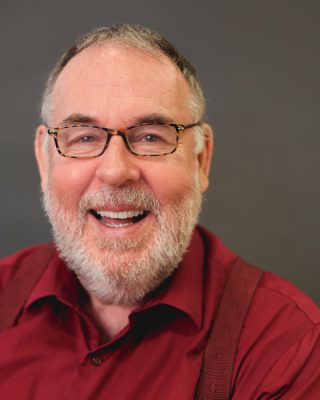
Colin McPhillamy was a little boy growing up in England, just four years old, when he gazed upwards and became instantly captivated by the serene magic of London’s night sky.
The lunar allure stirred his soul and left a beautiful mark.
“I have a memory of seeing an enormous full moon looking up and going, ‘What’s that?’” the 66-year-old Pleasantville resident recalled in a Zoom interview last week.
McPhillamy’s early fascination with the cosmos inspired a childhood desire to one day work in science, as an astronomer.
But, by age 12, a pair of realizations struck the young Londoner of Australian descent. First, he concluded he lacked a strong enough aptitude for physics or math.
“And the second was that I got a vocational call to become an actor,” McPhillamy explains in a video on his website.
A different path was fated in the stars – a stage life.
Coffee and a Reading
By 1983, McPhillamy finished his studies at the Central School of Speech and Drama, part of the University of London, a famously prestigious conservatoire renowned for its distinguished history, high-quality training and notable alumni, including Dame Judi Dench, Laurence Olivier and Vanessa Redgrave.
What followed for McPhillamy was more than four decades of continuous theater work across the globe, from northern Scotland to southern Australia, from Jerusalem to Beijing, from the National Theatre in London, to American Broadway and Off-Broadway.
But by 2015, his boyhood sensibilities were tugging harder and harder at his spirit, even as he continued to act.
“I thought I really got to do something about this because I kept feeling sort of pulled to go in this direction,” McPhillamy told me in one of our interviews last Tuesday. “So I began to study with various different schools of astrology and I found a couple of people who were willing to sort of mentor me.”
This week, the past eight years of astrology work culminates in a next chapter for McPhillamy’s Pleasantville Astrology business: Monday’s opening of a local office at 42 Memorial Plaza, between Starbucks and the post office.
‘You-ness of You’
McPhillamy’s website, pleasantvilleastrology.com, points out how he’s always been “fascinated by the mystery of the solar system where we all live,” and invites people to book free 20-minute Zoom consultations.
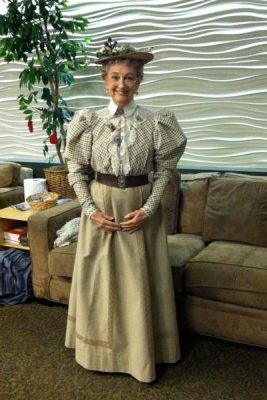
While I possess next to no past personal knowledge about astrology, I do wonder whether my beloved newspaper industry has caused much of the belittling of the practice.
Astrology is the study of how movement in the solar system can shape events here on Earth. Just in that sense alone, the practice is infused with more potential logic than many of the religiously-inspired articles of faith appropriately accepted and embraced by polite society.
However, when newspaper horoscopes attempt to apply 12 nuggets of fortune cookie-style wisdom to the entire world’s population, skepticism understandably arises.
It’s obviously easy to disprove the notion that all the people born under the same sign would face the same kind of day or maneuver the same kind of life.
Yet as McPhillamy points out, an astrological chart features far more than just the 12 zodiacal signs relating to the date of birth.
There are also a dozen “houses” representing different areas of life, linked to either time of day and/or place of birth on the planet.
“And most astrologers work with 10 planetary bodies,” McPhillamy explains in a brief video on his website. “So you can see that there are, at a minimum, at least 1,440 variables when it comes to casting a natal chart, which is why each person’s natal chart is unique in the way that each individual human is unique.”
But beyond that, what even those data points neglect to address is “the essential you-ness of you,” as McPhillamy put it.
Mark My Words
To capture the nuance of the “you-ness of you,” a serious astrologer needs to meet the subject in order to dissect and collaboratively analyze a personalized chart.
I was intrigued enough to accept McPhillamy’s invitation for a reading, and gave him my birthday, my place of birth, and, after some digging by my father, the time I was born.
McPhillamy told me my sun sign is Cancer (I was generally aware) and my moon sign is Virgo (who knew?) while also identifying how I’m a Libra rising, given my time of birth.
“I would say that there’s a very strong drive towards being of use, towards being of service, and that plays into this sense of detailed orientation,” he told me when reading my chart in a Zoom session last week, before I formally interviewed him. “So obviously, in your work as a journalist, that’s very useful, but that’s quite strongly indicated.”
He also revealed some personal and astonishingly accurate details about me. Unfortunately, those insights impact others, and wouldn’t be appropriate to publish.
But I can tell you something specific he referenced about my future – a transformative creative epiphany to unfold in a little more than two months from now, on precisely Apr. 20. (He also foresees a new professional chapter for me to emerge in September 2025.)
As McPhillamy explains it, on Apr. 20, Jupiter and Uranus are going to appear in the same part of the sky from our earthly perspective.
“And this is a very creative lineup, and it only happens every 14 years,” observed McPhillamy, who is also a writer, having penned short stories and plays for BBC radio starting in 1990. “So Jupiter expands anything it touches. And Uranus is the planet of the unexpected, the unforeseeable, the electrical, the awakening, the random, the revolutionary, the exciting, the creative. So it’s a very creative moment that happens Apr. 20.”
Mark it down in your calendars.
‘Sophisticated Magic’
McPhillamy possesses an excellent sense of humor, and a humble nature. He oozes non-pretentious sophistication and credibility in this otherworldly space. Within moments of meeting him, a deep well of intelligence, kindness and introspection is on vivid display.

You can even detect his dry wit on McPhillamy’s introductory website video.
In it, he notes how some say that “astrology is astronomy without the physics and the math.”
“You could say that,” he intoned, “but it wouldn’t be exactly accurate.”
Instead, astrology is the meeting point between arithmetic and mythology, between psychology and intuitive reasoning, between physics, quantum physics and metaphysics, McPhillamy added.
That said, he acknowledged how he’s many moons from understanding why exactly astrology works.
“No one has yet come up with a plausible explanation,” McPhillamy remarked. “Present-day scientific orthodoxy is rife with denial, and practicing astrologers are mostly content to explore this exquisite, sophisticated magic without needing to know much more than that. It does indeed seem to work.”
One thing to keep in mind about conventional wisdom and current science: If you fast forward a few generations at most any moment in human history, many past truths are exposed as fundamentally wrong.
Belief that Earth was the cosmic center eventually gave way to the sun’s central position by the 16th century, while the Newtonian view of absolute time yielded to Einstein’s theory of relativity just in the last century.
Fact-seeking demands unwavering persistence, while navigating the mysteries of the universe necessitates humility in acknowledging the limits of our own understanding and the willingness to challenge our preconceived conclusions.
You Do You
With roots tracing back to ancient civilizations such as Mesopotamia, Egypt, and Greece, astrology has evolved over millennia, blending mathematical observations of planetary movements with cultural and spiritual beliefs.
In 2021, a study published in Science Advances and highlighted by Harvard Health Publishing, found that participants exhibited disrupted sleep patterns in the lead-up to a full moon, offering an interesting parallel to research around astrology, and a tangible connection between celestial events and real-world experiences.
However, it’s important to stress that conventional science generally views astrology as a pseudoscience, lacking empirical evidence for its claims about the influence of cosmic forces on human affairs and natural events.
I asked McPhillamy what he might say to skeptics.
“Well, you could say ‘Consult the stars, elevate your life,’ that’s what you could say,” he replied. “But to be honest with you, I’m not interested in convincing anyone.”
My view?
While present-day science can’t prove the impact of planetary movement on global affairs, that fact doesn’t negate the potent anecdotal evidence from sophisticated practitioners like McPhillamy.
The challenge appears to be reconciling the subjective nature of astrological revelations with the rigorous empirical standards upheld by conventional science.
As for psychic abilities, McPhillamy does not profess to possess any – although he does enjoy strong powers of intuition.
“I went to visit a psychic when I was 21,” he recalled. “And she was quite on the money. She said, ‘There’s something else for you to do after you’ve been an actor.’ Well, I never really took that very seriously. I forgot all about it.”
Until he remembered.
‘Quantum Physics for Dummies’
The father of two adult children from his first marriage, McPhillamy does believe his sensibilities as an actor have helped inform his work as an astrologer.
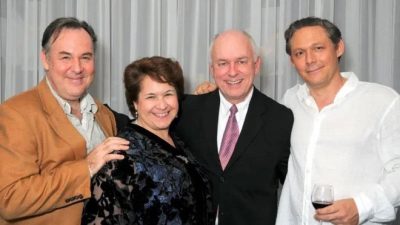
As for his stage life intersecting directly with his scientific interests, the most notable example came when he played Niels Bohr, a Danish physicist, in Michael Frayn’s 2011 play “Copenhagen.”
McPhillamy bought “Quantum Physics for Dummies” and “managed to struggle through half a dozen pages,” he self-deprecatingly quipped about researching the part. But he was struck by the fact “that a particle can also be a wave.”
“The implications are staggering,” McPhillamy remarked. “What if the particle is planet-sized?”
If a particle can exist in two places at once, as Bohr established, “our perception of reality is completely conditioned by the three dimensions in which we appear to live,” McPhillamy said, and “we never see anything except the surface of any material object.”
He drew parallels between the exploration of spacetime in science fiction writing, particularly in Kurt Vonnegut Jr. novels like “Slaughterhouse-Five” and “The Sirens of Titan,” and the fundamental concepts of quantum physics unearthed by Bohr and subsequent scientists.
Even before Bohr, Albert Einstein’s theories advanced the concept that time is not constant and can be influenced by factors such as gravity and velocity.
“People like us, who believe in physics, know that the distinction between past, present, and future is only a stubbornly persistent illusion,” Einstein wrote in a Mar. 21, 1955, letter to the family of his lifelong friend and theory of relativity collaborator Michele Besso, upon Besso’s death.
So what’s the grand takeaway around the potentially nonlinear nature of time?
“If we could see the fourth dimensional aspect of that motion, say, in the time span between our birth and our death, we would see all the connections between the planets in that span,” McPhillamy said. “And apprehending possible meanings would be less like divination and more like literacy.”
The Talented Mr. McPhillamy
McPhillamy was actually born Colin Johnson.

He discovered his birth certificate carried the name McPhillamy when seeking a passport at 16, and waited until he was 43 to officially change it, attributing the decision to his “Uranus semi-return,” finding the name McPhillamy irresistible as an actor given the fact that it “requires more neon.”
He is married to his second wife, the industry famous Australian actress Patricia Conolly, whose career has included work in the West End and Royal Shakespeare Company in England to American Broadway, Off-Broadway and various U.S. regional theaters.
The pair started dating in 2000 when both acting on Broadway in “Waiting in the Wings” alongside superstar legends Lauren Bacall and Rosemary Harris.
There’s an enormous age difference between McPhillamy and the 90-year-old Conolly, who is two dozen years older than her husband.
Meet Patricia Conolly
Born in Tanzania, in East Africa, before growing up in Australia, Conolly was raised in a deeply religious household; her father was a Church of England priest, and her maternal uncles were bishops.
While she knew little of astrology when she first met McPhillamy, she already maintained an open mind, despite her upbringing.
The couple married in 2015 and about four years later Conolly gained a deeper appreciation for her husband’s passion during an astrology conference she joined him at in Spain.
“I had more respect for the intellectual side of it,” recalled Conolly, a current parishioner at St. John’s Episcopal Church in Pleasantville whose psychologist daughter and 11-year-old grandson also live in the community. “But I think what it did for me was that I realized there are so many different tools for people to get healing.”
Free Willy
Her daughter, Dr. Emily Bly (Conolly’s first husband, Bly’s father, died at 37), holds a PhD and is affiliated with the Pleasantville Psychology Group.
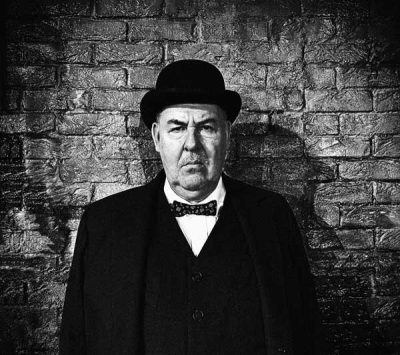
“But I’ve discovered that there are other ways that people can find out about themselves,” Conolly said. “Astrology is not the same thing. But there is a psychological aspect to it.”
In fact, while astrology far from dominates their domestic conversations, McPhillamy has helped Conolly discover much about her own path, including by highlighting Sagittarian influences.
“I previously knew because I was born in August, I just thought well Virgos are critical, they’re detailed, all those things,” Conolly told me in a phone interview last week. “But when he started telling me about my chart, I realized there was much more. Everybody’s different.”
One misconception she said her husband helps neutralize for clients is any notion that astrology stands in contrast to the existence of free will or individual agency.
“They’re not there just to say I predict your future,” she said of skilled astrologists. “They can tell you what the situation might be and you make the decisions.”
Conolly also said how she’s gained a richer view around how astrology can provide a framework for analyzing big contemporary and historical change as well.
That aspect allows her to avoid being “so rattled about things.”
“You also look back and say, well, that made sense, because the stars were doing this or that at that particular time,” she said. “But I just think it’s something that I’ve come to appreciate.”
Path Forward
Pleasantville’s Samantha Hoover sought her first-ever astrological reading a few weeks ago after a conversation with McPhillamy, who she was already acquainted with through a friend.
A deputy director of engagement and operations at Hudson River Museum in Yonkers, Hoover emphasized how McPhillamy’s insights from their session last month helped validate her career focus.
“He totally characterized that I would be gravitating to something that’s in the art world and my strength in terms of storytelling and writing,” said Hoover, the married mother of two adolescent-aged children in Pleasantville.
Hoover described McPhillamy’s approach as thoughtful and thorough, weaving a narrative of potential opportunities and challenges awaiting her in the coming years.
It wasn’t a crystal ball predicting an immutable fate but rather a cosmic roadmap offering insights into the choices that lay ahead.
“He’s a wonderful and charming person,” Hoover told me. “It’s not always, like, a definitive answer, but gives you an interesting way to look at the choices you’ve made and the path forward, what the future might hold.”
‘Really Delightful’
That approach was a relief to Hoover, who worried about learning any fateful details.
“I think I was a little nervous to find out about something that lied ahead,” said Hoover, noting how those concerns were quickly assuaged by McPhillamy’s style.
The reading became, as Hoover described it, a “mini therapy session,” where the focus wasn’t solely on the stars but on self-discovery and clarity.
“I think he reads people very well, not just literally in the tarot card reading, but just as a human being,” Hoover said. “And so he’s really delightful. It’s a lovely experience. He really cares about the person and trying to help them to have more clarity about their life.”
Bring Your Brain
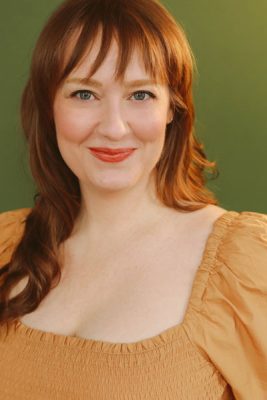
Lizzie King-Hall, a Manhattan-based actor with Ivy League arts training at Brown University, has been a longtime friend of her fellow thespian.
She said McPhillamy’s sensibilities allow him to approach his work at the nexus of astrology, tarot cards and literature, armed with an encyclopedic knowledge of Shakespeare and the planets.
“He’s able to just pull from such deep knowledge coupled with his incredible empathy and incredible sense of humor,” she said. “I’m sure you’ve seen. It’s just a delight to talk to him.”
Their paths converged when McPhillamy was acting in a play in Florida; King-Hall’s boyfriend was also in the production.
They forged a quick friendship.
“He’ll make you laugh until you cry and then is able to sort of have these incredible insights,” she remarked.
King-Hall said McPhillamy is inclined during readings to engage in conversation, making the experience a dialogue, not a monologue.
He interprets and analyzes charts, forges conversation and is not apt to unequivocally prognosticate.
She said his insight “has been that there is always more to know about yourself and that you are worth knowing and that you are not a problem to solve.”
“I think that’s the temptation of astrology and the tarot is to bring a specific issue to it,” King-Hall added. “But I think Colin very wisely knows that the issues can get solved with a deeper knowledge of the self.”
McPhillamy’s scholarly, avuncular demeanor seems to elevate the experience for certain clients.
“I mean, female actors are pretty low-hanging fruit when it comes to this but he adds a sensibility that an intellectual can get behind because you feel like you still get to bring your brain into the room,” King-Hall said.
Is he a better fit for hardcore believers, curious agnostics or soft skeptics?
“Colin’s the perfect person for any,” she replied. “Like the person who’s like, ‘Man, I’m really tired of this hackneyed version of commercial astrology.’ Colin is the bomb for that. The person who says, ‘I’ve never believed in this, and this is [b.s.].’ Colin is the gateway.”
Oak Trees and Cherry Trees
Unfortunately, astrology is the type of profession that attracts its fair share of frauds and scammers. Which is what makes a sincere, empathetic, contemplative person like McPhillamy all the more valuable in his field.
I asked McPhillamy if he saw a link between astrology and other forms of personal development. He said yes, he does recognize the parallel, pointing to other practices, such as yoga, Tai Chi and psychotherapy.
They all hold the potential to illustrate individual patterns and architectures in personal destiny.
Any genuine method of personal development empowers people to live more authentically, guided by their unique nature, McPhillamy said.
If you’re an acorn, you can grow into an oak tree.
“You’re not going to grow into a cherry tree, however hard you try,” he chuckled. “So I think it’s like that, that there’s a pattern or there’s an architecture in personal destiny. And astrology can reveal that.”
‘Warm and Caring’
Just from a practical standpoint, the reading experience with McPhillamy helped me better process and constructively handle some unprompted and unrelated hostility that came my way last week.
McPhillamy told me a beautiful story from a Native American oracle card about a gentle fawn’s encounter with a fearful demon on a sacred mountain, a parable about the power of love and compassion to dissolve barriers.
“Stop pushing so hard to get others to change and love them as they are,” the story concluded. “Apply gentleness to your present situation and become like the summer breeze, warm and caring.”
Skepticism of astrology as presented in popular culture might remain more than well-earned.
But the intricate system McPhillamy described involving the alignment of celestial bodies and the interplay of countless variables in a birth chart, along with his intuitive analysis, provides fascinating food for thought.
I found it all deeply enlightening.
And having prepared a three-part series last year on the miraculous phenomena of near-death experiences and scientific research on the transcendence of consciousness, I couldn’t resist the urge to also ask McPhillamy for his bigger-picture perspective on why we’re all here.
The best use of astrology is to empower the individual through awareness, he said, stressing how life is transient, and, depending on one’s viewpoint, it may involve coming from “another place, possibly a better place.”
McPhillamy suggested that while it might be easy to live life focused on mundane pleasures, there is much more to it.
“I do think you have to look for meaning,” he said. “I think it’s two-way. It’s a collaborative process, if you’re looking for meaning.”
Your Journey – Yes, You
A laundry list of heartfelt testimonials from real people about McPhillamy’s prowess should be reason enough to keep an open mind.
Even in the domain of holistic healthcare, some practitioners of Ayurveda, Chinese medicine and Reiki incorporate astrology.
If nothing else, the practice, when performed by a seasoned practitioner like McPhillamy, undoubtedly offers a lens through which people can gain insight into their unique traits and life experiences.
And that alone is worth the price of admission.
Or at least a free consultation to begin an exploration.
McPhillamy is awaiting your call.
Adam Stone is the publisher of Examiner Media. E-mail him at astone@theexaminernews.com with tips and feedback.

Adam has worked in the local news industry for the past two decades in Westchester County and the broader Hudson Valley. Read more from Adam’s author bio here.
